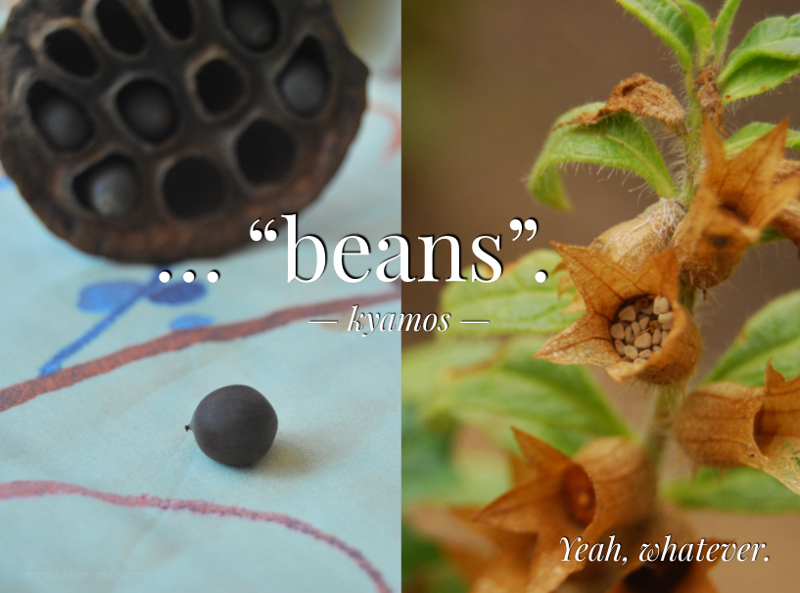[~ 6 minutes]
Listening to: Sleepthief feat. Jody Quine, Eurydice
It was the beans’ fault, of course.
Had it not been for the philosopher’s strange obsession with them, Pythagoras would’ve probably been filed away in my memory alongside other mathematically inclined Greek figures.
But he did have something for fava beans (Vicia faba L.), or so the ancients wrote, and everybody has been trying to explain it away ever since. This means he crops up in the most unexpected of places, such as a book on the sacred lotus (Nelumbo nucifera) in which ’tis suggested that Pythagoras’ ‘beans’ were not broad beans, as it has been assumed for centuries, but lotus seeds instead.
(This sounds a lot more plausible when you realise that the Greek word for sacred lotus was, indeed, “Egyptian bean”, kyamos Aigyptios. Although I cannot fathom how they possibly found them remotely similar. Of course the Greeks apparently used the word kyamos rather… indiscriminately. They also called henbane ‘pig bean’, hyos-cyamus, and there is NOTHING bean-ish about henbane —or lotus-ish, for that matter).

Pythagoras, frankincense and divination: what we (don’t) know
However, I was not expecting to encounter my legendary philosopher-mathematician during my research on olibanum (frankincense, Boswellia sacra). As it turns out, at least one of his biographers, the Roman Porphyry, pointed at him as the introducer of the art of libanomancy* in Greece. Continue reading
